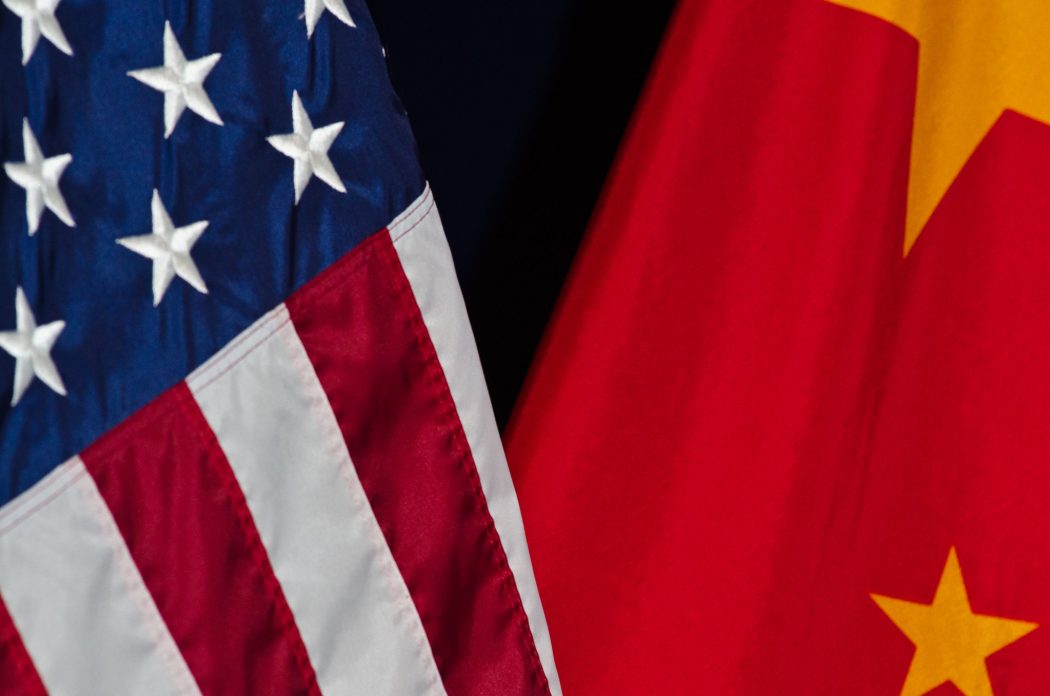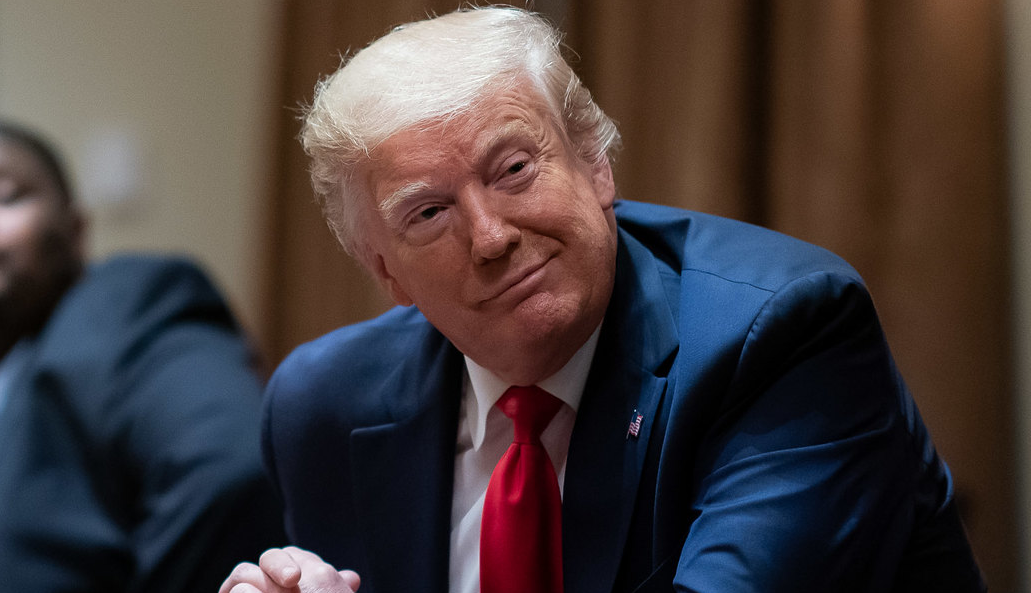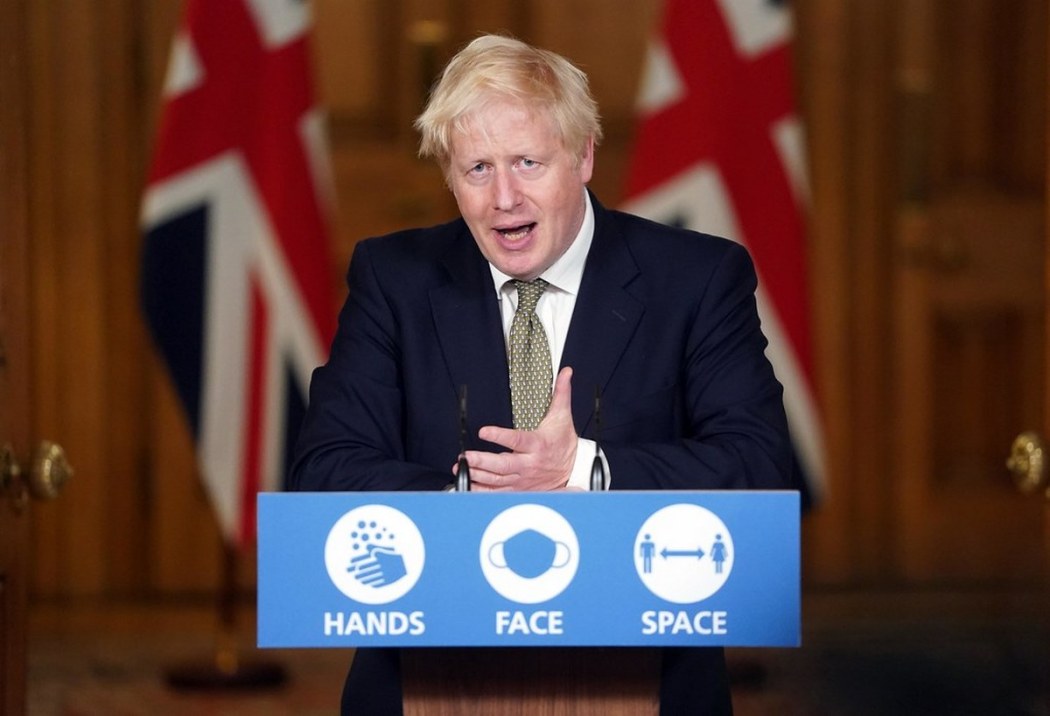During the mid-19th century the United States prided itself on its self-professed peaceful posture towards China. Greater economic ties, Washington maintained, would only be achieved through diplomacy.
That is after the Europeans had, using not so peaceful methods, imposed extraordinarily strict terms on the Chinese. In what has been dubbed “jackal diplomacy”, then and only then would the Americans approach the weakened Qing dynasty asking for equal terms.

Not only did the Treaty of Tianjin of 1858 contain some of the most egregious British demands on the Chinese, from preferential tax and trade policies to the establishment of treaty ports, its enforcement revealed the superficiality of America’s fence-sitting.
In 1859, in an effort to ensure compliance with the treaty, the British once again assaulted the Taku forts. However, this time a reinforced Qing army beat them back. Coming to the aid of the embattled Royal Navy, despite his country’s declared neutrality, was American naval commander Josiah Tattnall. The British were towed to safety and their injured attended to. In justifying his actions Tattnall proclaimed: “Blood is thicker than water.”
Some 90 years later the Brits were not willing to reciprocate this fraternity. After Mao Zedong’s victory in the Chinese Civil war the British swiftly attempted to recognise his People’s Republic of China, much to the displeasure of Washington who was hellbent on containing global communism. This made the United Kingdom the first western country to seek to switch recognition from Chiang Kai-shek’s Nationalist government.
For Britain, “blood” clearly counted for little when compared to its lucrative assets in mainland China and its recently reclaimed Crown colony of Hong Kong. Of course, Whitehall mandarins would also justify the move as an attempt to drive a wedge between Beijing and Moscow. A masterstroke of realpolitik, not mere self-interest, they would insist. Yet whatever the rights and wrongs of the switch, or its motivations for that matter, the incident gives the lie to the “British poodle”, “American master” narrative. It is a line ever popular with critics of what they themselves demeaningly call “the special relationship”.

Another episode in 1971 also disproves the sneering jibes of the anti-Atlanticists. This time Britain, against America’s wishes, voted to throw the Republic of China, still under the rule of the Generalissimo, out of the United Nations. Again Britain proved it was not going to be Uncle Sam’s lapdog.
But let us not get too bogged down in all the canine metaphors. Jackals and poodles are ultimately neither here nor there. Rather, they are just a crude way of alluding to who is following who (or not, as the case may be). The point is that Anglo-American relations are complex. All the shared values in the world, and historic ties, cannot guarantee cooperation. Britain more than amply demonstrated this with its policies towards China during the latter half of the 20th century. Yet right now the situation is different. In the past few years there appears to be a growing consensus on both sides of the Atlantic. A growing consensus for challenging, containing, confronting (call it what you like) a rising China. A “new Cold War”, some might say.
It is for this reason I include the historical preamble. As a result of this recent alignment the superpower sidekick slur is being resuscitated. Sure, it can be argued that since the 1940s Britain has been less a “junior superpower” than a “superpower’s preferred junior” as the polemicist Christopher Hitchens once quipped. However, portraying Britain as an unquestioning and subservient junior deserves a rebuttal.
Recently I had the displeasure of virtually attending the Stop the War Coalition’s “The US, China and the Threat of War” fringe meeting at the British Labour Party conference. This is supposedly one of the benefits of the Covid age. That is, the ability to attend the panels you would normally do best to avoid but from the comfort of your own home. It was as disappointing as expected.
Not only was there little actual China-related talk, least of all about Beijing’s aggressive impulses (plenty of complaints about Washington, though). But the tired old cliché that “when Trump says jump, Boris Johnson replies how high” was uttered not once but twice. I was in stitches…

Trump’s distinct approach to “Chiiina” is well known. If for no other reason than his bombastic rhetoric. In trying to make sense of their man his administration has ushered in a new approach to the country, one which seeks to learn the mistakes of previous administrations. Secretary of State Mike Pompeo put the problem better than his President ever could:
“We [the United States] did an awful lot that accommodated China’s rise in the hope that communist China would become more free, more market-driven, and ultimately, hopefully, more democratic.”
What America failed to realise, Pompeo went on to say, was how China was actually evolving. That has all changed. Now, with engagement ditched, both great power competition and the topic of China-proofing the USA have risen up America’s agenda. Abroad, the United States has stepped up efforts to contain Beijing’s growing power and send strong signals in opposition to its aggressive actions in the South China Sea and towards Taiwan.
At home, the Trump administration has sounded the alarm on Chinese Communist Party (CCP) influence campaigns, while national security concerns have become a more prominent aspect of trade policy. There has even been, in spite of the Commander-and-Chief’s inability to provide moral leadership, encouraging words from high-ranking administration officials who have repeatedly highlighted human rights abuses in Hong Kong and Xinjiang.

It was never guaranteed that Boris Johnson would sign up to this. In fact, after winning the Conservative Party leadership campaign he quickly brandished his “pro-China” credentials. As well as proclaiming his enthusiasm for Xi Jinping’s Belt and Road initiative, Johnson vowed to keep Britain the most open place in Europe for Chinese investment. This was no surprise. Not only did this former Foreign Secretary simultaneously have a general disinterest in foreign affairs and a post-Brexit “Global Britain” slogan to make something of. He also had a reputation, from his time as London Mayor, as someone keen to splash the cash on big infrastructure projects – including £52 million on a bridge which was never built.
After winning a “stonking” election victory last December on a promise to level up Britain’s economically lagging regions, the question soon turned to who was going to pay. There were even murmurings in February of the Chinese coming in to put back on track the construction of Britain’s high-speed rail. Not only has this not happened but five months later the British government U-turned on Huawei, announcing its complete removal from the country’s 5G networks by the end of 2027 and a ban on buying its equipment after the end of this year.
Beijing must be wondering what went wrong. According to James Forsyth, political editor of The Spectator and a man with his ear firmly pressed to the walls of No.10, Covid-19 changed everything. The problem was not where the virus originated, he reported, but rather what the crisis revealed about the Chinese state and Britain’s dependence on it. According to sources, Downing Street’s pandemic-postponed foreign policy review will now aim to get Great Britain “off the trajectory of ever-increasing dependence” on China.

Of course, the potential withering away of Johnson’s 80-seat parliamentary majority with the establishment of the CCP-critical China Research Group within his own Conservative Party, and changes in public opinion, have also prompted the rethink. What has mattered less, it appears, is the need to massage Donald Trump’s ego.
If anything proves the unimportance of America’s influence it would be the British Labour Party’s hardening anti-China stance. Forget the “anti-imperialist” spiel from Stop the War’s fringe meeting. It was fringe in both senses of the word. Its panellists, including the previous Labour Leader Jeremy Corbyn and his Shadow Home Secretary Diane Abbott, have returned to backbench obscurity. As his successor Keir Starmer has emphatically made clear, Labour is under new leadership.
The fact that somebody with Corbyn’s views was ever elected Labour leader just goes to show the deep misgivings about Atlanticism amongst the party membership. No Labour politician will gain plaudits from the rank and file for agreeing with an American president. Let alone a Republican one. Let alone Donald Trump. If anything, as Orwell put it, a bit of insincere anti-Americanism would help certain left-wingers keep in with the fashionable opinions of the minor, albeit vocal, mob.

So when, this month, Labour’s new shadow Asia minister Stephen Kinnock echoed Washington’s tune he had every reason, politically speaking, not to. Below I copy his closing remarks from the October 7th Westminster Hall Debate on Tibet because, except for generously letting the previous Labour government off the hook, he puts the case against successive Conservative governments well.
“It is becoming increasingly clear that our interaction as a United Kingdom, and the interaction and engagement of the United Kingdom Government – indeed, of successive Governments since 2010 – has been characterised, I am afraid to say, by naivety and complacency, both domestically and abroad. Of course, in 2015 David Cameron and George Osborne announced the so-called golden era of Sino-British relations, based on the premise that we would open our markets to China and that the Chinese Government would reciprocate while gradually aligning with the international rules-based order and opening up to trade with the rest of the world. That approach viewed the UK’s relationship with China purely through an economic lens, turning a blind eye to human rights abuses in exchange for the naive and narrow promise of future economic benefit.”
The similarities with Pompeo’s own analysis of the West’s previous policies on China, quoted above, are obvious. Although unintentional. Likewise the shadow minister’s list of complaints sound faintly familiar too: unbalanced trade, intellectual property theft and the dumping of heavily subsidised goods, to name a few.

Some of those opposed to America’s actions in East Asia, or for that matter in any part of the world, will likely use Stalinist guilt by association tactics to smear the Labour Party’s new China policy. Others will complain that it is insufficiently different from “the Tories” or use Boris Johnson’s rethink as further evidence to prove he is just another foreigner-loathing Trumpian “populist”. Yet surely the point is to have the right position, regardless of who else holds it (otherwise it would be impossible to take a stance on anything).
Like their counterparts in Washington, No.10 are eager to get China-proofing by reducing Britain’s reliance on the country for essential imports. Labour agree and want it done faster pointing to research highlighting 229 UK supply chains dependent on China, of which 59 relate to critical national infrastructure.
There is also a recognition in Westminster, on both sides of the green benches, that the previous approach towards China of so-called “engagement” (a euphemism for appeasement if there ever was one, as I have previously argued on the Hong Kong Free Press) has failed. Labour speak vaguely of the need to “build an alliance of democracies to champion cooperation based on shared values and promoting human rights.” In conservative circles there is talk of the British government’s similar scheme dubbed the Democratic 10 (D10) which includes the democracies of the G7, plus India, South Korea and Australia.
With further flagrant human rights abuses in Xinjiang, the trashing of the Sino-British Joint Declaration on Hong Kong, and the ascendancy of Beijing’s “Wolf Warrior” diplomacy over the past year, it is no wonder Britain seeks to protect itself and its allies.
Still, London’s thinking lags behind Washington. The Foreign Secretary, Dominic Raab, insists Britain is not seeking to prevent China’s rise and even Kinnock, a week on from that stonker of a speech which I approvingly quoted from, has spoken about “constructive engagement” with China – whatever this means.
Ending Cameron & Co.’s “Golden Era” rhetoric, plus a few more Freedom of Navigation operations in the South China Sea, is not a sufficient global response. Like Trump or loathe him (there are no prizes for guessing my view) his administration has put competing with China for global and regional supremacy at the heart of America’s foreign policy.
Hopefully where Washington continues to lead, leaving a ripped up decades-old China consensus in its wake, other liberal democracies including Britain will follow. This would be a reversal of America’s jackal-like imitation of the British approach to the Qing dynasty – except this time it is China who is the aggressor.
Support HKFP | Policies & Ethics | Error/typo? | Contact Us | Newsletter | Transparency & Annual Report | Apps
| HKFP is an impartial platform & does not necessarily share the views of opinion writers or advertisers. HKFP presents a diversity of views & regularly invites figures across the political spectrum to write for us. Press freedom is guaranteed under the Basic Law, security law, Bill of Rights and Chinese constitution. Opinion pieces aim to point out errors or defects in the government, law or policies, or aim to suggest ideas or alterations via legal means without an intention of hatred, discontent or hostility against the authorities or other communities. |
Help safeguard press freedom & keep HKFP free for all readers by supporting our team

More HKFP OPINION:
HKFP has an impartial stance, transparent funding, and balanced coverage guided by an Ethics Code and Corrections Policy.
Support press freedom & help us surpass 1,000 monthly Patrons: 100% independent, governed by an ethics code & not-for-profit.










